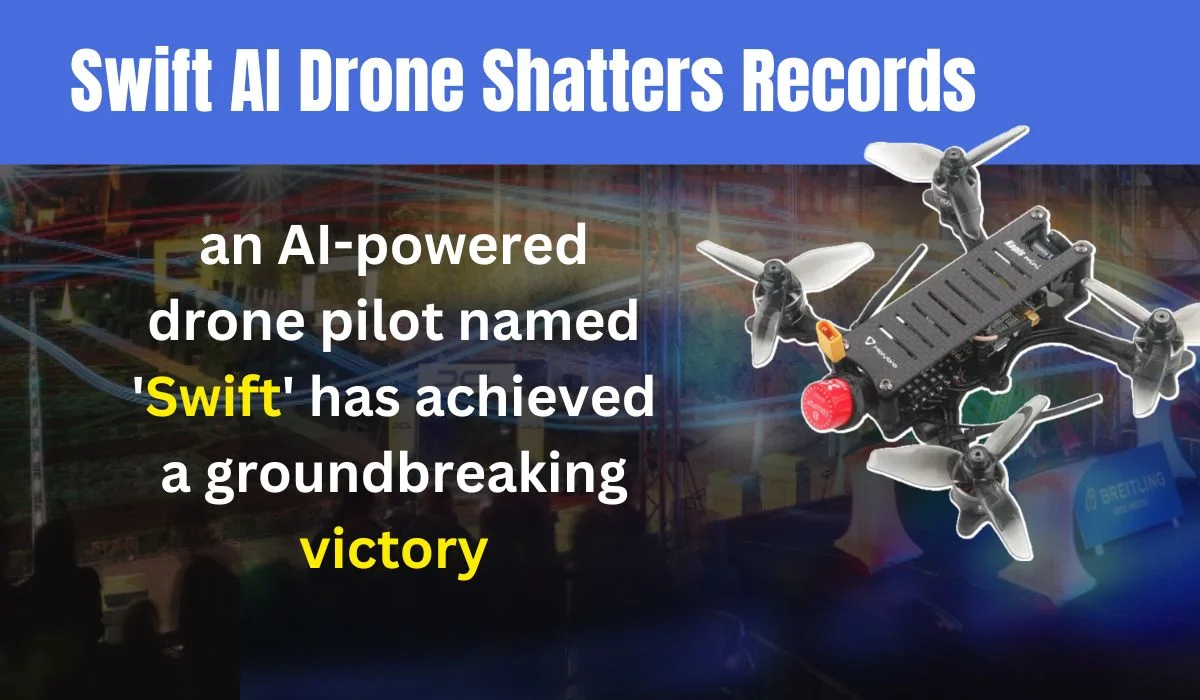Swift AI Drone Shatters Records
In a remarkable turn of events, an AI-powered drone pilot named ‘Swift’ has achieved a groundbreaking victory over three world-champion human drone pilots in a highly competitive race.
This historic moment marks the first instance where artificial intelligence has outperformed human champions in a physically demanding sport originally designed by and for humans.
Swift, the AI-equipped drone, was developed through a collaborative effort between researchers at the University of Zurich and Intel. In an FPV (First-Person View) Drone Racing competition, Swift emerged victorious in 15 out of 25 races, showcasing its exceptional capabilities. Notably, it set a remarkable record by completing a single lap in just 17.47 seconds, nearly half a second faster than the best human drone pilot.
The three formidable human competitors, Alex Vanover, Thomas Bitmatta, and Marvin Schaepper, each held prestigious titles as drone racing champions. However, they were outperformed by an algorithm that had learned to navigate a 3D racecourse with breakneck speeds, all while avoiding crashes.
FPV drone racing is an exhilarating sport where participants remotely pilot high-speed drones through intricate obstacle courses. Wearing headsets, these pilots control the drones while receiving a live video feed from the onboard camera, providing an immersive first-person perspective. The race demands exceptional skill, with quadcopters reaching speeds of over 100 kilometers per hour and enduring forces of up to 5 g.
Swift’s success is attributed to its integration of machine vision and real-time data capture, mimicking the setups used by human racers. It features an onboard camera and an integrated inertial measurement unit that monitors speed and acceleration.
These components feed crucial information into an artificial neural network, enabling real-time drone location tracking and race gate identification. Additionally, a deep neural network-based control unit calculates the optimal racing path, ensuring Swift completes circuits swiftly.
Deep reinforcement learning played a pivotal role in Swift’s training process, allowing it to discover the most effective commands for navigating the racecourse. While it encountered hundreds of crashes during this training, the simulation environment enabled researchers to restart the process as needed.
Detailed race analyses revealed that Swift consistently exhibited superior performance at the beginning of races and executed tighter turns compared to human pilots.
Its fastest lap of 17.47 seconds was a remarkable achievement, surpassing the fastest human pilot by half a second.
One of the key advancements of Swift is its ability to handle real-world challenges, including aerodynamic turbulence, camera blur, and changes in illumination.
These challenges often confound systems relying on pre-computed trajectories.
This victory marks a significant milestone in the evolution of artificial intelligence. It opens the door to the possibility of more such remarkable achievements in the future, as AI continues to advance and redefine its capabilities.

